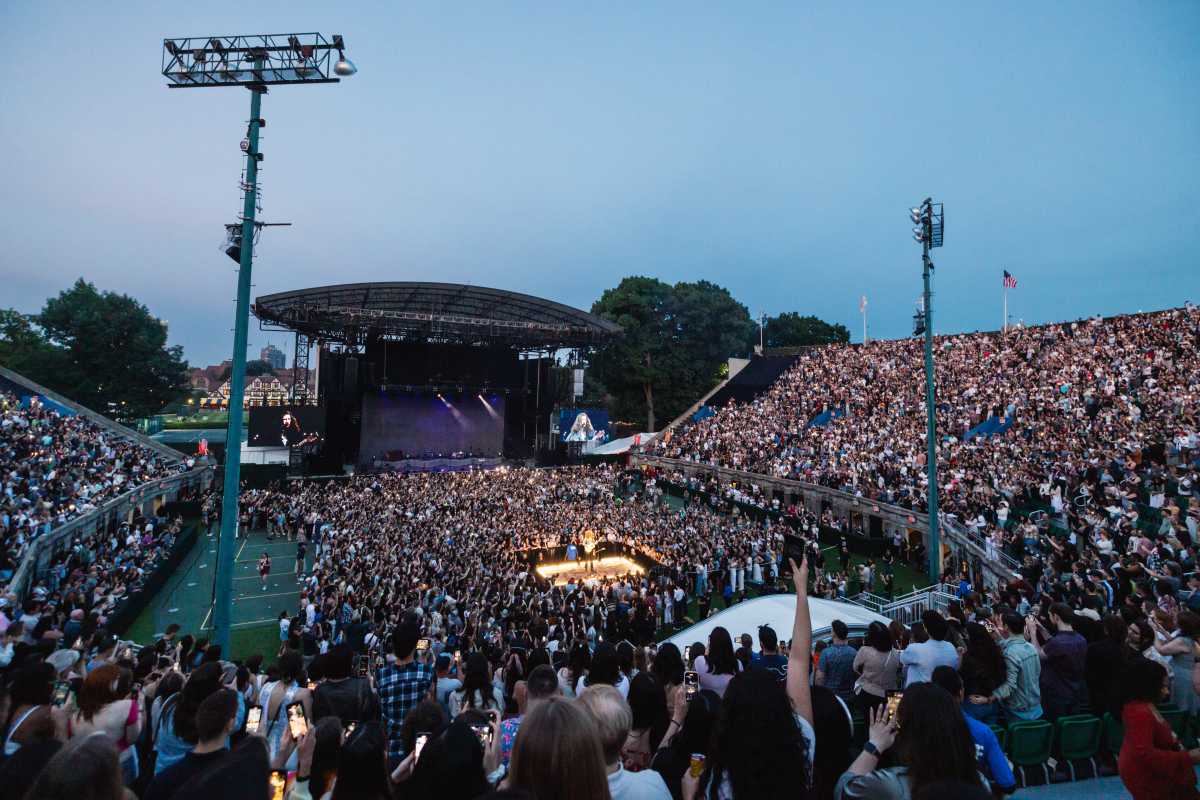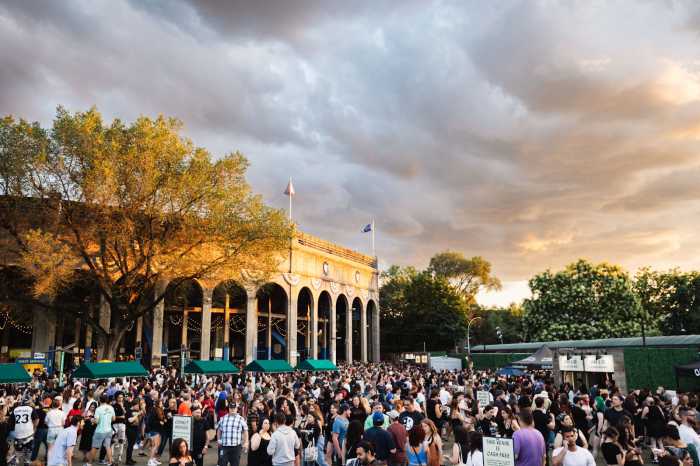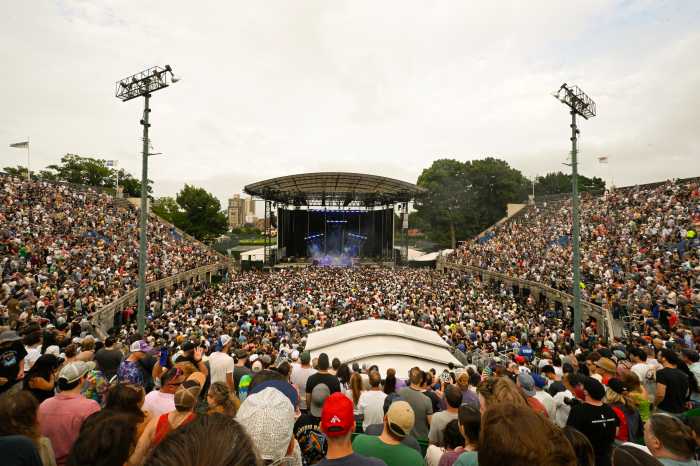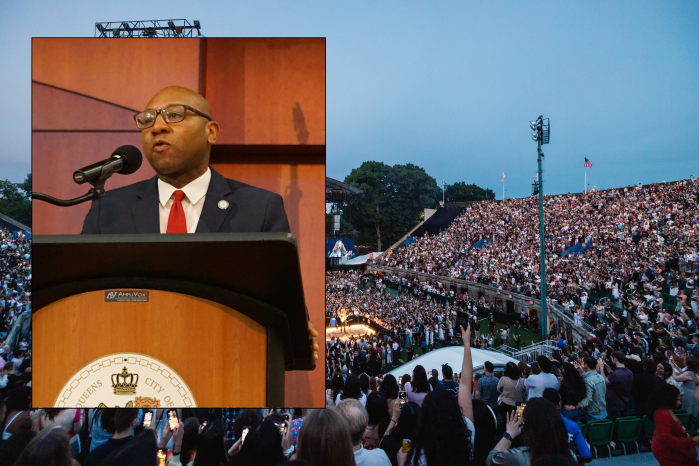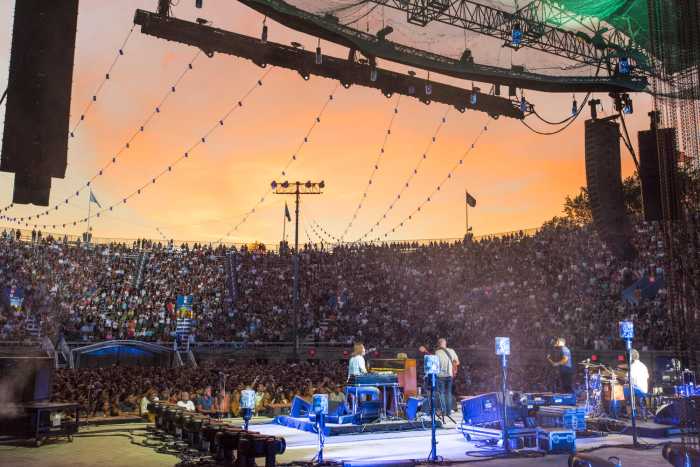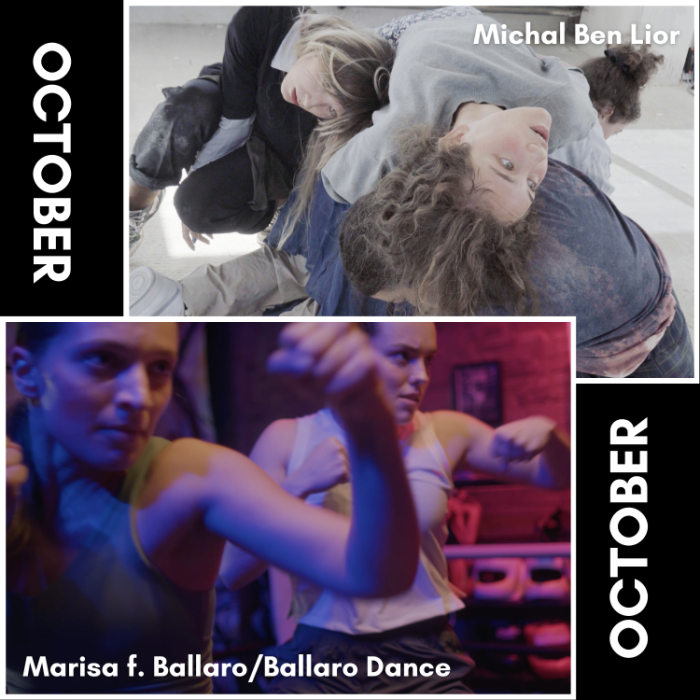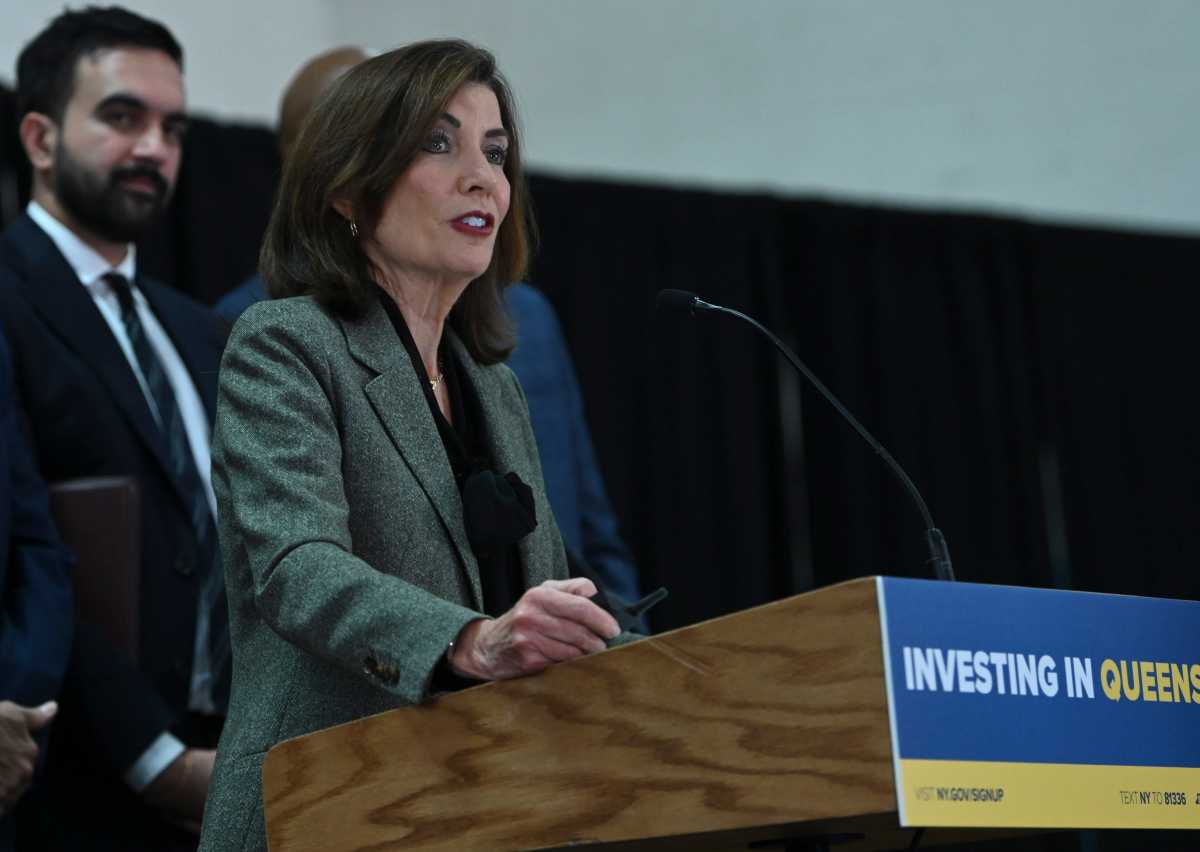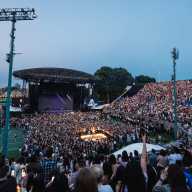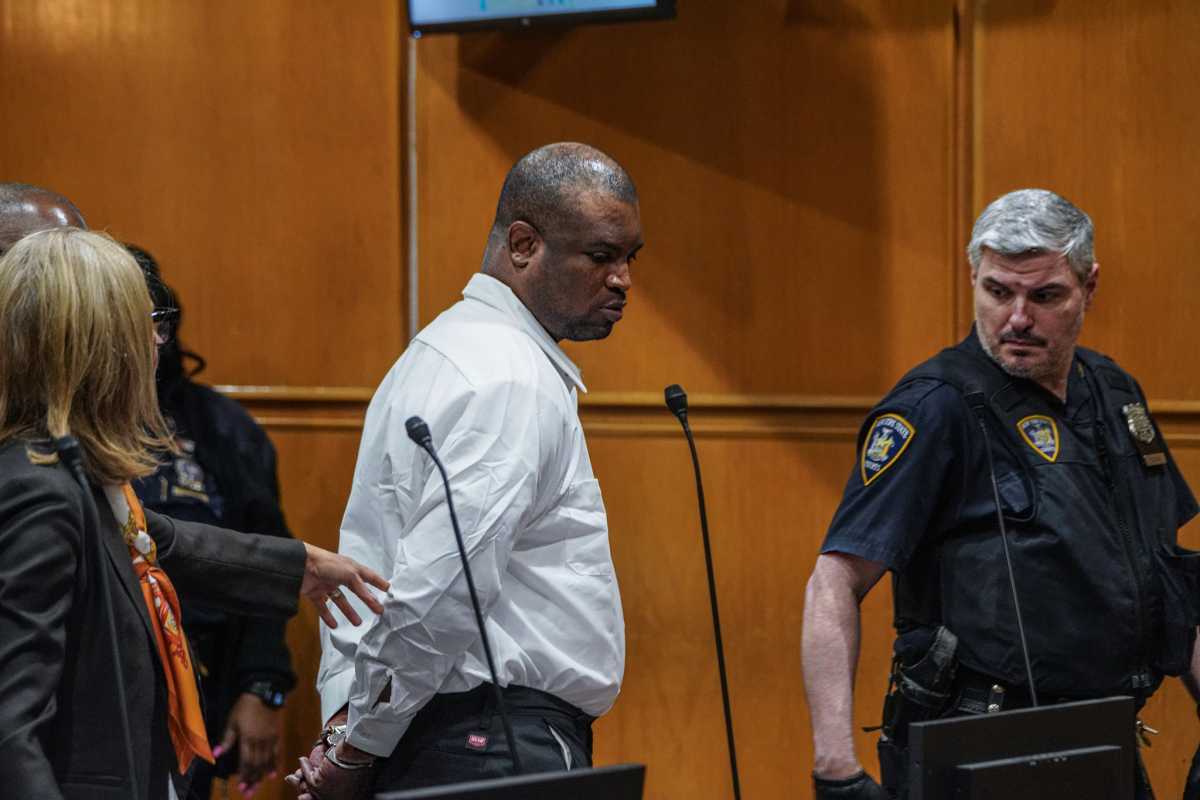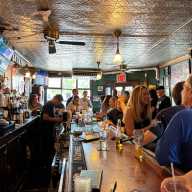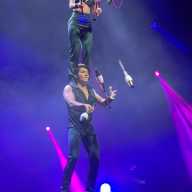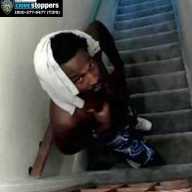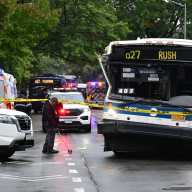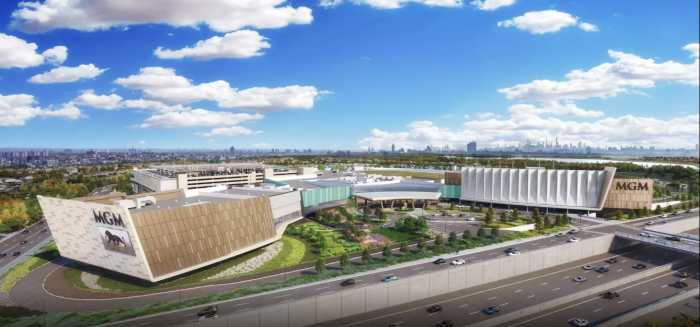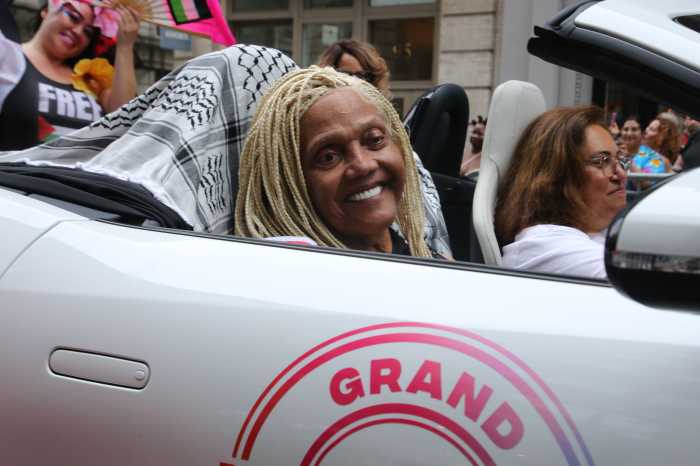A Forest Hills residents association has sued the city and the NYPD over what they allege has been an unlawful seizure of the private roads surrounding Forest Hills Stadium to facilitate dozens of concerts and events at the venue over the past three years.
The Forest Hills Gardens Corporation (FHGC), which represents homeowners in the neighborhood, has filed a lawsuit against the city in the U.S. District Court for the Eastern District of New York, accusing the city of unconstitutionally seizing private streets belonging to the Gardens Corp to accommodate events at the venue.
FHGC, which owns the private streets surrounding the popular venue, previously issued licenses for concert seasons at the stadium but declined to do so in 2023 because the schedule had become “so large and disruptive,” according to Katie Rosenfield, a partner at law firm Emery Celli Brinckerhoff Abady Ward & Maazel LLP, which is representing the residents group.
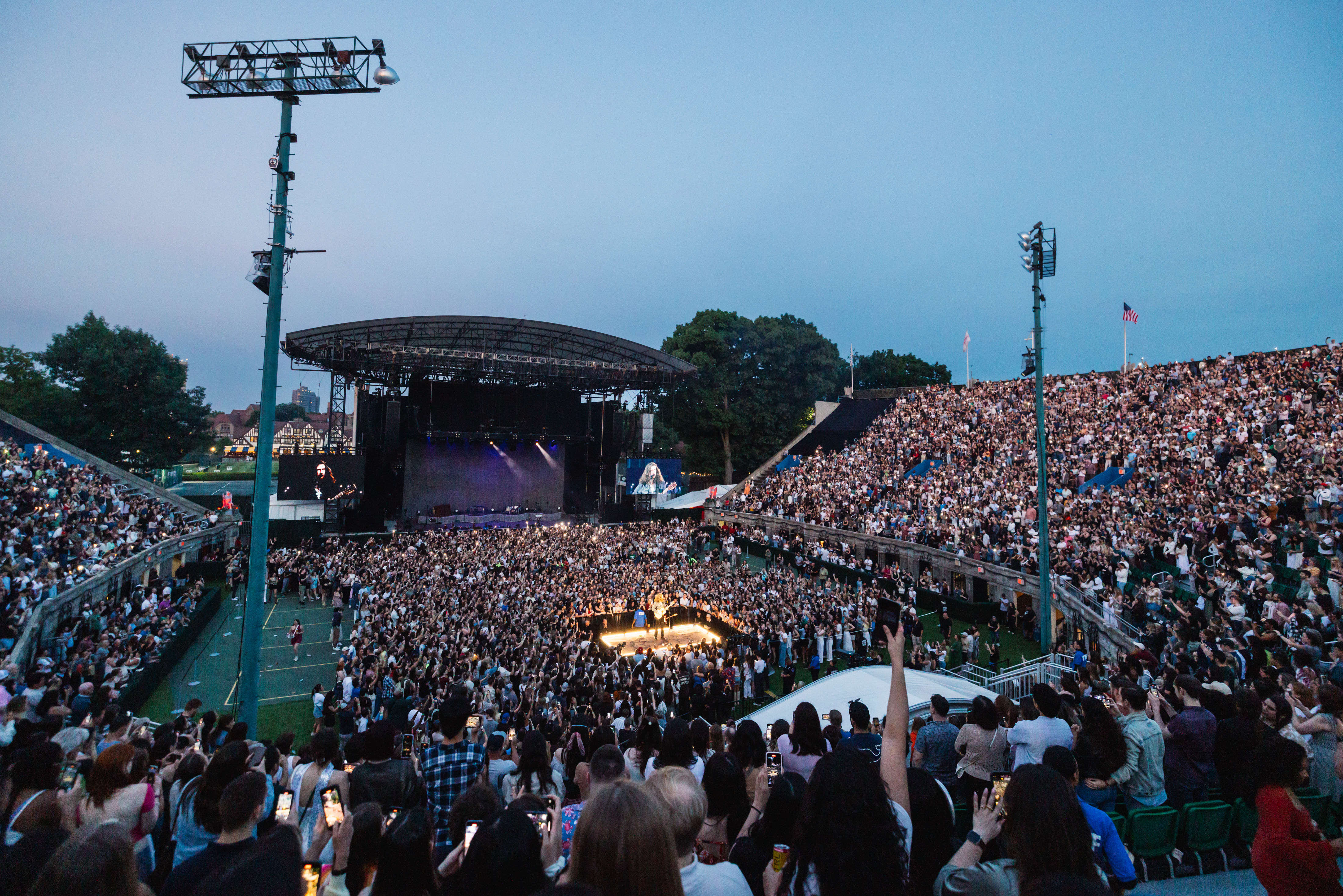
Rosenfield said the city has continued to close the streets and direct concertgoers onto private property ever since without compensating residents for doing so.
Rosenfield pointed to a letter from Inspector William Gallagher of the NYPD’s Legal Bureau on March 19 this year.
The letter notified West Side Tennis Club, which leases and operates the iconic venue, and Tiebreaker, which operates events at the stadium, that the NYPD would not be issuing sound amplification permits for the 2025 season because FHGC would not grant the police access to the private roads surrounding the stadium.
The issue was eventually resolved when the NYPD approved an alternative security plan that saw private security teams monitor conditions on the roads leading to the venue, which allowed the 2025 season to go ahead as planned.
Homeowners ‘shut out’ of decision-making process
However, Matthew Mandell, chair of FHGC’s Law Committee, allege that the Gardens Corp was not involved in the decision-making process for the alternate security plan in any capacity.
“We are completely and totally shut out of the management of our own property,” Mandell said. “The city and the concert promoter made a deal at the beginning of the season to do the concerts. The Gardens was not part of that deal at all.”
The homeowners group has argued that the measure represents a violation of the 5th and 14th Amendments, stating that they were granted no due process when the private streets were allegedly seized to accommodate events at the stadium.
Mandell argued that the alternate security plan has made existing quality of life issues worse for residents living near the stadium because private security teams lack the authority of the police to enforce open container laws and clamp down on drug use.
Residents have stated that the busy concert Forest Hills Stadium schedule, which saw 31 shows take place at the venue this season, has negatively impacted the quality of life for people neighboring the stadium.
Rosenfield, meanwhile, said residents had no issue when approximately 10 shows took place at the venue every year but said FHGC declined to issue licenses for the venue when events became more frequent and totaled almost 40 shows a year.
“The burden on people who live there is just enormous,” Rosenfield said.
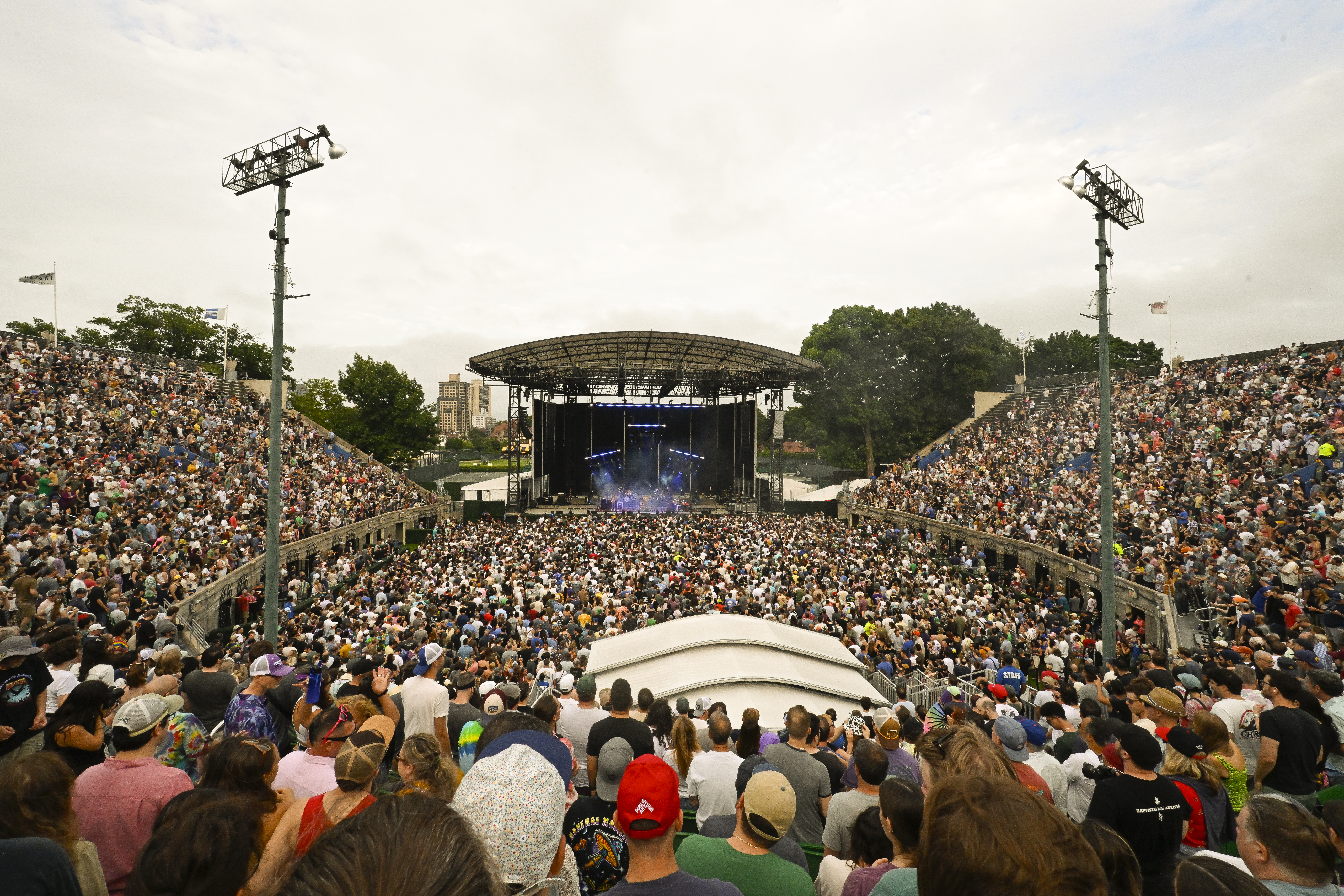
She added that she hopes the lawsuit will help “recalibrate” the schedule at the stadium in a way that is satisfactory for all parties.
Rosenfield said residents had no other option but to enter litigation against the city.
“They don’t want to be in litigation,” she said. “But this is what the Constitution provides… if you have your property taken away at least be compensated for it.”
However, another neighborhood group has criticized FHGC over the recent lawsuit.
Forest Hills Gardens Standup, a group formed in March to demand further transparency from the FHGC board, said it is “deeply concerned” by the decision to sue the city and the NYPD.
JP Evangelista, a co-founder of Forest Hills Gardens Standup, accused FHGC of spending hundreds of thousands of dollars on previous litigation without input from local residents.
Evangelista, a Forest Hills Gardens resident who has lived in the neighborhood since 1979, further accused the FHGC board of making “no legitimate attempt to come to the table” with the parties involved in the legal dispute.
Potential solutions
Mandell, on the other hand, said there are a number of measures that would immediately improve the quality of life for residents living close to the stadium.
He said preventing any concerts on school nights would go “a long way” toward satisfying residents, while preventing concerts from taking place across several nights in succession would also immediately satisfy residents.
Mandell said a run of 15 concerts over a 30-day stretch across September and October this year was particularly difficult for local residents.
He also called for an end to all-day events such as the recent All Things Go festival, which he described as particularly burdensome for local residents.
“That would really be a noticeable improvement,” Mandell said.
Mandell also called on West Side Tennis Club and Tiebreaker to implement more noise controls at the venue, stating that the NYC Department of Environmental Protection (DEP) issued nine violations to the venue over the 2025 season after monitoring 12 different concerts. The DEP confirmed that it has issued nine summonses this year related to events at the venue.
Forest Hills Stadium officials stated at the beginning of the summer that the venue would use a new state-of-the-art sound system for the 2025 season that will enhance fan experiences. They stated that the L-Acoustics sound system, designed by Dave “Rat” Levine, will also significantly reduce offsite sound into the neighborhood.
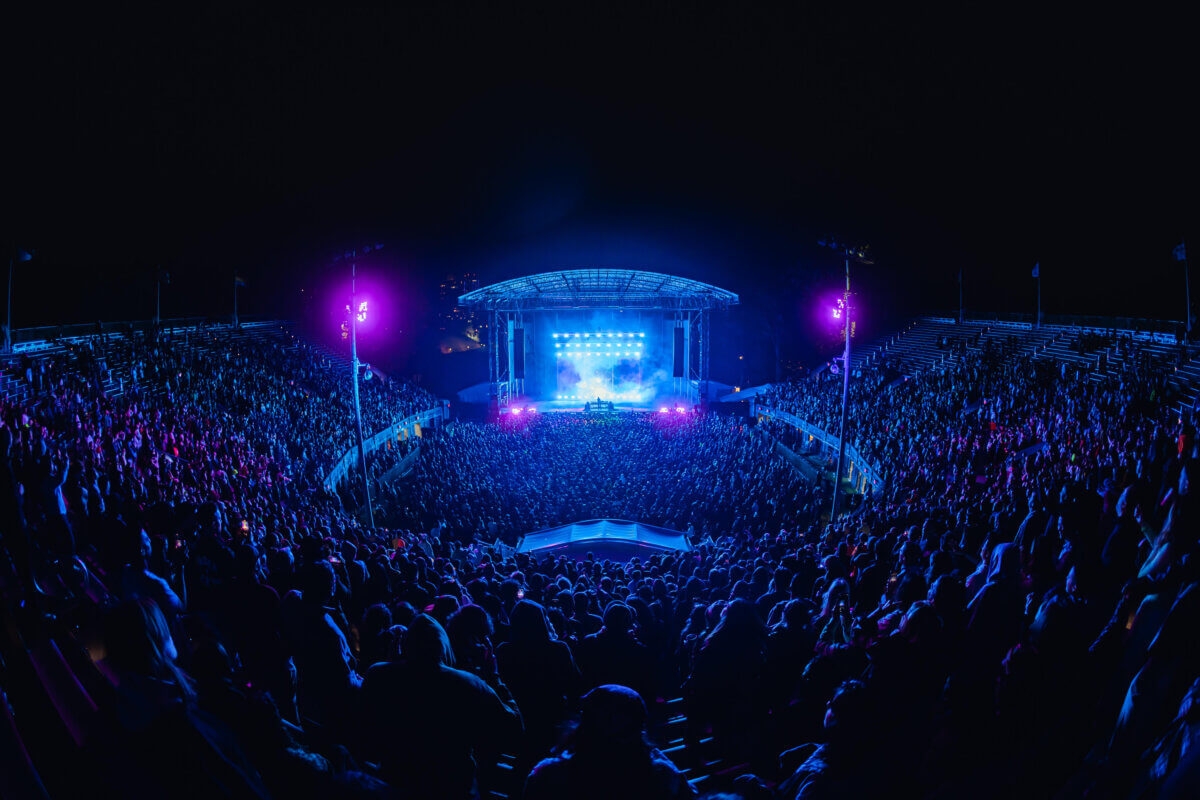
“Forest Hills Stadium’s commitment to both exceptional live music and being a responsible neighbor is demonstrated through the installation of our cutting-edge PA system, “Forest Hill Stadium officials said in a release. “This innovative technology delivers crystal-clear sound quality while controlling and minimizing sound propagation into the surrounding community.”
However, Mandell said the new sound system has not resolved the issue of noise complaints.
“They made a big deal that they had a new sound system that was going to resolve the issue, but they have not resolved it,” Mandell said.
Homeowners have also stated that there is an entrance to the stadium from a public street and have called on organizers to utilize that entrance and divert some of the foot traffic away from the FHGC-owned roads surrounding the venue.
Mandell stated that organizers currently use the private roads almost exclusively for stadium access because they are closer to public transit and therefore more convenient for concertgoers.
Evangelista, however, said there are Gardens residents who support the concerts and argued that the “vast majority” of residents would prefer a settlement without incurring the legal fees of taking the matter to court.
A ‘lifeline’ for the Forest Hills community
Elected officials such as Queens Borough President Donovan Richards have previously criticized FHGC over separate litigation that the homeowners association has brought against Forest Hills Stadium.
Speaking to QNS shortly after the NYPD initially denied sound amplification permits for the venue in March, Richards said it would be “shortsighted and destructive” to allow a small number of “frustrated individuals” to shutter one of the city’s most iconic venues.
Richards also alleged that the wider Forest Hills community outside of FHGC were largely supportive of the venue.
Richards added that West Side Tennis Club and Tiebreaker had gone “above and beyond” to be good neighbors to the surrounding community.
In a statement issued to QNS on Tuesday, Richards said he would continue to work with city officials, Forest Hills residents and stadium representatives to find a “tangible solution” for the venue.
“As he has said repeatedly for years, Borough President Richards knows Forest Hills Stadium to be both a world-class hub of entertainment and a vital generator of economic activity for the surrounding community — things that Queens has long deserved and continues to receive through these summer concert series,” a Richards spokesperson said in a statement.
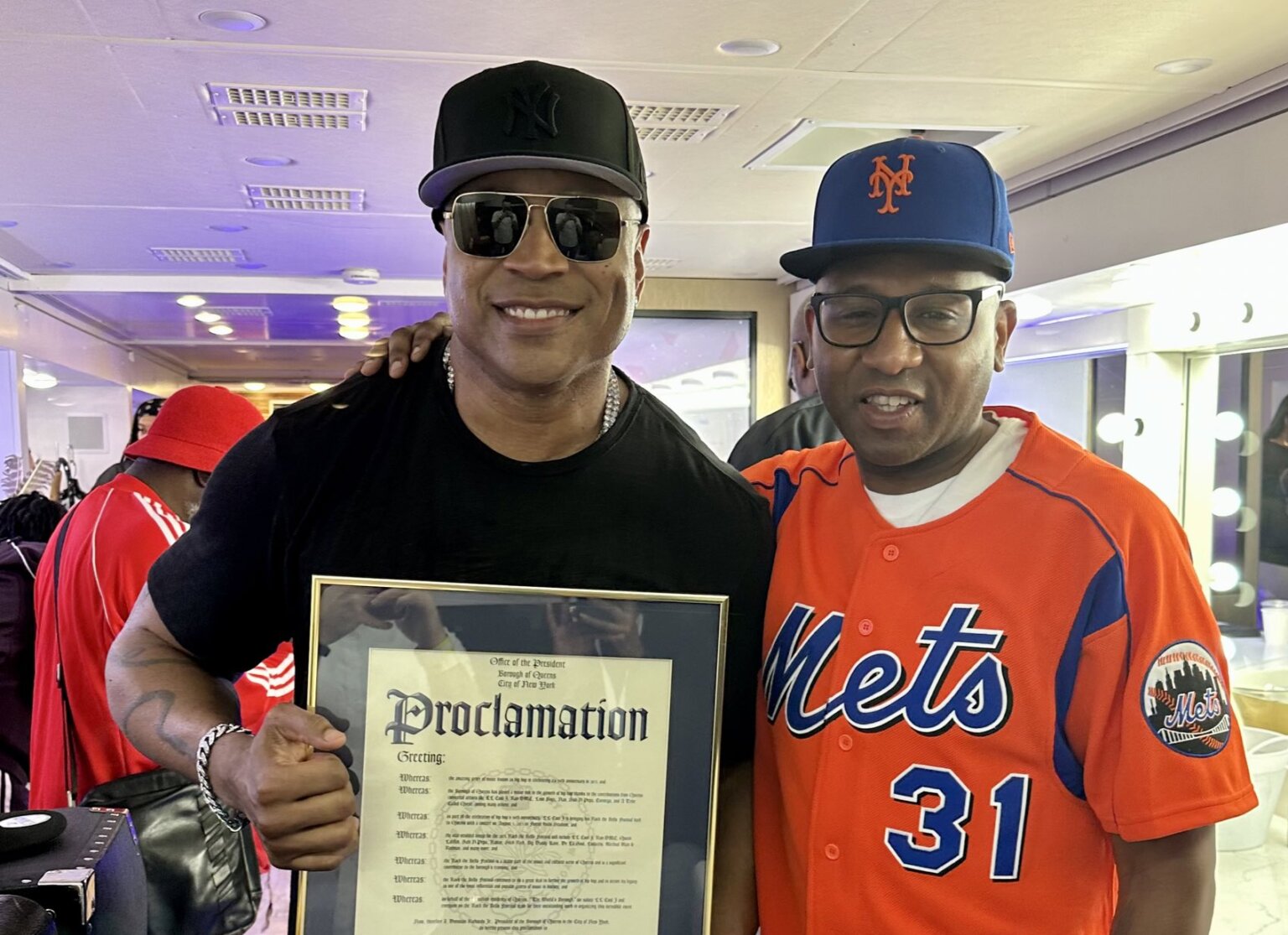
Richards also told QNS in March that the venue is a “huge lifeline” for small businesses operating in the vicinity.
Mandell, however, pushed back and said he would like to see an economic impact assessment for the area. He said some businesses, such as local bars, undoubtedly see a boost thanks to events held at the stadium.
But he thinks other businesses that are not attractive to concertgoers have been hurt by the concerts because local residents are less likely to visit them on busy concert nights.
“If you own a local store that serves the local economy, people can’t get to you. People can’t drive to your store to pick something up,” Mandell said.
The recent lawsuit is the latest in a string of litigation tied to a long-standing dispute between FHGC and Forest Hills Stadium.
In October last year, Queens County Supreme Court Judge Joseph J. Esposito dismissed five of seven claims brought against West Side Tennis Club and Tiebreaker by FHGC, including claims of trespassing and zoning violations.
He did not dismiss claims of public or private nuisance but also did not deliver a verdict in either case and encouraged all parties to continue working with the NYPD to ensure that concertgoers do not stray from designated routes and venture into residential areas.
Officials for Forest Hill Stadium declined to respond to QNS’ request for comment.

